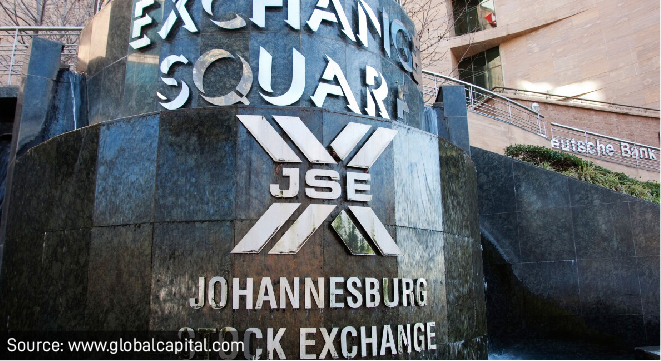Financial markets were buoyed in 2021 by an easing of Covid-19-related restrictions, an ultra-accommodative monetary and fiscal policy stance and a rebounding jobs market, Momentum’s Herman van Papendorp, the head of investment research and asset allocation, and economist Sanisha Packirisamy, say in their review of developments in financial markets last year.
Despite new Covid-19 variants and inflation worries rattling investors throughout the year, they say accommodative monetary and fiscal policies in key advanced nations supported sentiment. The CBOE Volatility Index, or “fear gauge”, ended the year 5.5 points lower.
The local equity market followed global markets higher in 2021 and posted its strongest return since 2009, with the FTSE/JSE All Share Index soaring by 29.2%, say Van Papendorp and Packirisamy.
The highlights for the local market were:
- Resource shares climbed for the sixth consecutive year and ended 2021 32.3% higher, despite the price of gold falling nearly 6%.
- The FTSE/JSE Financials Index increased 29.8% in 2021 after falling 19.7% in 2020.
- The FTSE/JSE Industrials Index strengthened 26.5% in 2021, after rising 12% the year before.
- The FTSE/JSE Mid-cap and Small-cap indices increased by 28.9% and 59.1% after dropping 14.4% and 0.3%, respectively, in 2020.
- The FTSE/JSE SA Listed Property Index recovered 36.9% after plunging 34.5% the year before.
Meanwhile, the rand weakened by 7.8% against the US dollar in 2021. It depreciated by 1% against the euro and 6.9% against the British pound.
Developed markets drive global equity gains
Global equities ended the year 18.5% up, propelled by strong gains in developed markets (DMs), say Van Papendorp and Packirisamy.
The MSCI DM Index was the primary underpin of stronger global markets in 2021, gaining 21.8%, after rising 15.9% in 2020.
Equity markets in the US and Europe supported gains in the DM composite index. The S&P 500 Index rose for a third consecutive year, ending 2021 28.7% higher.
The rebound in the economy and in earnings, which started in 2020, continued in 2021 and boosted markets in the US. According to Bloomberg, the energy and real estate sectors were the best performers of 2021, followed by technology and financial shares.
The Eurostoxx 50 Index rose 24.1% in 2021, following a 2.5% drop the year before. Pandemic-related rescue packages and a confirmation from the European Central Bank that it was unlikely to raise interest rates in 2022 supported European equities during the year despite the resurgent pandemic on the continent.
Japanese equities were the laggards in 2021, given slow growth in domestic demand, which failed to recover strongly despite the nation hosting the Olympic games.
The Nikkei 225 Index climbed 6.7% in 2021, which was a narrower gain than the 18.3% increase the index achieved in 2020.
Emerging markets underperform
Despite the 27.1% gain in the Bloomberg Commodity Price Index for 2021, emerging markets (EMs) underperformed in response to supply-side shocks, which dented growth and raised risks to inflation. Moreover, EM assets underperformed as investors mulled over the end of the ultra-accommodative policy stance that many DMs adopted since the onset of the pandemic, say Van Papendorp and Packirisamy.
The MSCI EM Index dropped 2.5% for the year, driven weaker by Asian and Latin American shares, while the MSCI Europe, Middle East and Africa Index (EMEA) surged.
The market performance across EM diverged on the contrasting healthcare systems, varying government responses and a difference in capacity to provide fiscal and monetary policy support in the various countries.
The MSCI Latin America Index dropped for a second consecutive year by 8.1%, following a 13.8% plunge in 2020.
Asian shares ended the year 5.1% weaker, after rising 28.4% the year before.
The Europe, Middle East and Africa Index gained 18% in 2021, after falling 6.9% in 2020.



